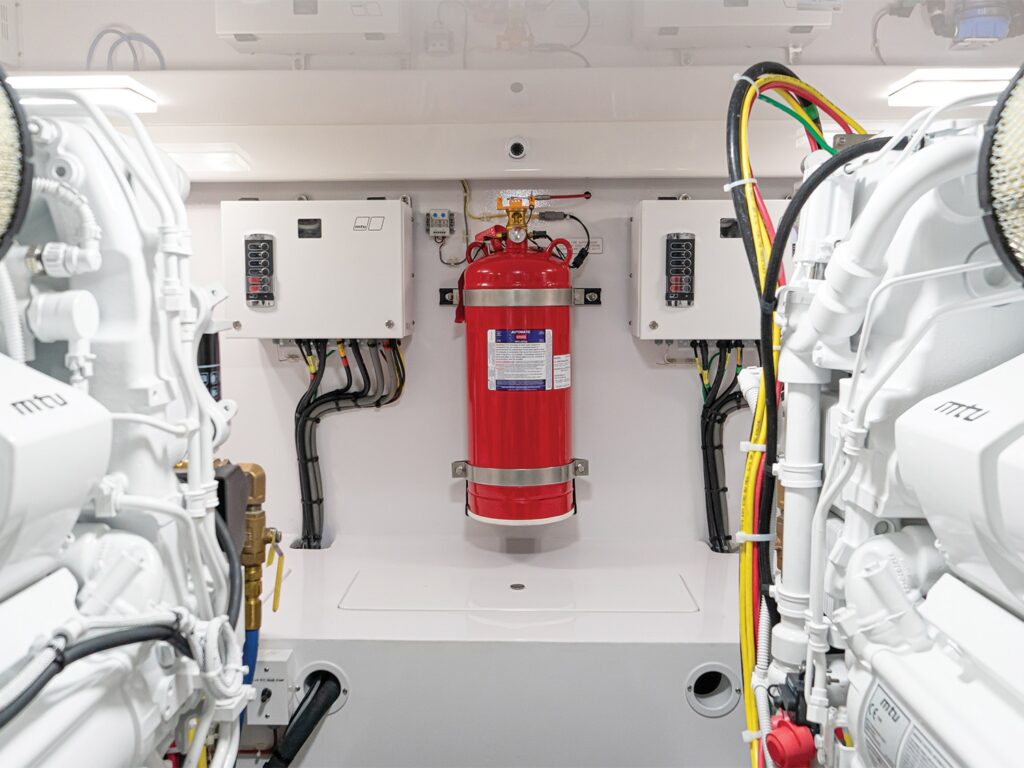The maritime and offshore industries operate in some of the most challenging environments on the planet. Ships and offshore platforms face numerous risks daily, with fire hazards among the most dangerous. Areas such as engine rooms, control rooms, generator rooms, and tanker compartments are particularly vulnerable. Marine fire fighting & fire suppression systems play a crucial role in safeguarding vessels, crew, and cargo by preventing small fires from turning into catastrophic disasters.
Why Fire Safety is Critical in the Maritime Industry
Fires onboard ships can escalate quickly, threatening not only the safety of the crew but also the integrity of the vessel and its valuable cargo. Unlike fires on land, marine fires present unique challenges: confined spaces, limited escape routes, flammable materials, and the remote nature of sea operations make fire incidents far more dangerous. In fact, maritime fires have been responsible for some of the most devastating accidents at sea, often resulting in loss of life and massive financial damage.
The complexity of ship design and operation means that fire safety measures must be comprehensive and robust. Addressing fire hazards proactively is essential to minimize the risk and ensure compliance with strict international safety regulations.
Common Fire Hazards in Marine Environments
Marine vessels contain multiple high-risk areas where fires can ignite. Engine rooms and generator rooms are filled with machinery and electrical equipment that operate at high temperatures, often under harsh conditions. Control rooms house critical electrical panels and communication systems that, if compromised, can hamper emergency response efforts.
Tanker fires represent one of the most severe threats due to the combustible nature of their cargo—flammable liquids or gases. Other causes of marine fires include electrical faults, fuel leaks, human error, and even spontaneous combustion in improperly stored materials.
Confined spaces on ships can intensify the danger, as limited ventilation can cause smoke and toxic gases to accumulate rapidly, complicating firefighting efforts and evacuation.
Types of Marine Fire Fighting Systems
Traditional fire fighting systems aboard vessels often include manual fire extinguishers, fire hoses, and fixed water sprinkler systems. While essential, these methods may not be sufficient for rapid suppression in critical compartments.
Modern marine fire fighting & fire suppression systems incorporate advanced technologies to detect and suppress fires automatically. Specialized firefighting equipment such as fire suits and breathing apparatus protect personnel during fire incidents, ensuring safe intervention.
Marine Fire Suppression Systems: What They Are and How They Work
Marine fire suppression systems differ from traditional fire extinguishers by actively detecting and suppressing fires before they spread. These systems are designed to operate automatically, triggering fire suppression agents once smoke, heat, or flames are detected.
Common types of marine fire suppression systems include:
- CO2 Fire Suppression Systems: Carbon dioxide is a popular agent due to its ability to displace oxygen and quickly suffocate fires without damaging sensitive equipment. CO2 systems are widely used in engine rooms and control rooms.
- Foam Fire Suppression Systems: Foam agents create a barrier between fuel and air, effectively extinguishing flammable liquid fires often found in tankers.
- Water Mist Systems: Using fine water droplets, these systems cool the fire and reduce oxygen levels with minimal water damage.
- Dry Chemical Systems: These systems deploy powders to interrupt chemical reactions in the fire.
The automatic nature of these suppression systems ensures rapid response, limiting damage and improving safety for crew and vessel.
Benefits of Installing Marine Fire Suppression Systems
Investing in marine fire fighting & fire suppression systems delivers numerous benefits:
- Fire Prevention and Mitigation: Early detection and automatic suppression prevent fires from escalating, protecting lives and minimizing damage.
- Protection of Assets: Vessels and valuable cargo are safeguarded, reducing repair costs and operational downtime.
- Compliance and Insurance: Meeting international maritime fire safety standards is critical for regulatory compliance and insurance coverage.
- Peace of Mind: Crew members and operators can work with confidence, knowing that advanced fire safety measures are in place.
These benefits contribute to safer maritime operations, which are essential for both commercial and offshore industries.
Regulations and Standards for Marine Fire Fighting and Suppression
The maritime industry is governed by strict regulations to ensure fire safety onboard ships. The International Maritime Organization (IMO) and the Safety of Life at Sea (SOLAS) convention provide comprehensive guidelines covering marine fire fighting & fire suppression systems.
These regulations specify system performance standards, installation requirements, testing protocols, and crew training. Adhering to these ensures that vessels are equipped with reliable fire suppression technologies and that crews are prepared to respond effectively in emergencies.
Compliance with these standards is not optional—it is a legal requirement critical for maritime operations worldwide.
Maintenance and Testing of Marine Fire Fighting & Suppression Systems
Regular maintenance and testing are essential to keep marine fire fighting & fire suppression systems fully operational. Corrosion, wear, and system faults can reduce effectiveness over time.
Ship operators should follow manufacturer guidelines and maritime safety regulations for inspection schedules, functional testing, and component replacement. Trained personnel should carry out routine drills to ensure crew readiness and system reliability.
Consistent maintenance protects the investment in fire suppression systems and ensures rapid response capabilities during emergencies.
Takeaway
Marine fire fighting & fire suppression systems are indispensable components of maritime safety strategy. With the ever-present risk of fire hazards aboard ships and offshore platforms, preventing fires before they occur is the most effective defense.
Advanced suppression systems not only protect lives and assets but also ensure compliance with international safety regulations. Regular maintenance, proper training, and adherence to standards are essential to maximize system performance.
Maritime operators seeking to enhance their fire safety protocols should consult industry experts to implement the best marine fire fighting & fire suppression systems tailored to their vessel’s needs. Investing in these technologies means investing in safety, reliability, and peace of mind on the open seas.











